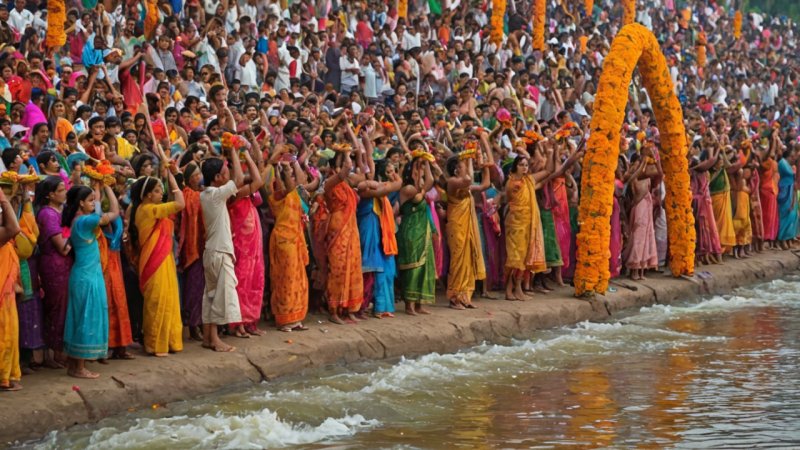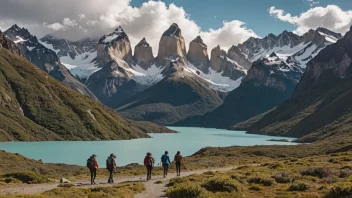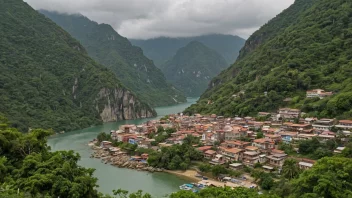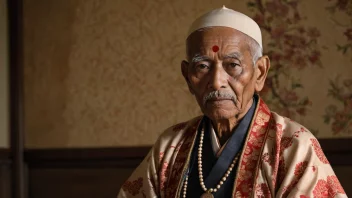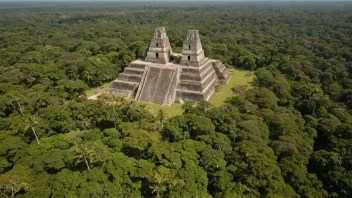The Festival of the River, celebrated in various parts of India, is a vibrant and colorful event that honors the lifeblood of many communities—the river. To delve deeper into the significance, traditions, and unique experiences associated with this festival, we had the pleasure of speaking with Dr. Aditi Sharma, a fictional expert in Indian cultural studies and river conservation. Dr. Sharma has dedicated over a decade to studying the cultural impact of rivers in India and their role in the various festivals celebrated along their banks.
Understanding the Essence of the Festival
Interviewer: Dr. Sharma, can you explain the essence of the Festival of the River and why it holds such significance in Indian culture?
Dr. Sharma: Absolutely! The Festival of the River is not just a celebration; it's a deep-rooted expression of gratitude and respect towards the rivers that sustain our ecosystems and livelihoods. In many communities, rivers are considered sacred, often personified as deities. This festival is a time for people to come together, pay homage to the river, and celebrate the abundance it provides, from water for drinking and agriculture to fish and other resources.
Traditions and Rituals
Interviewer: What are some of the key traditions and rituals observed during this festival?
Dr. Sharma: The traditions vary by region, but several common practices unite them. For instance, people often clean the riverbanks, decorate them with flowers, and create colorful rangoli designs. In many places, you'll see processions with floats, music, and dance performances. Rituals such as making offerings in the form of flower garlands, lighting lamps, and even floating small idols of deities in the river are common. It's a beautiful sight, filled with joy and devotion.
Unique Experiences
Interviewer: Can you share some unique experiences that travelers can look forward to during the Festival of the River?
Dr. Sharma: Certainly! Travelers can expect an immersive experience. For instance, in Varanasi, the Ganga Aarti is a mesmerizing spectacle where priests perform rituals at dusk, illuminating the river with thousands of oil lamps. In Kerala, the festival is marked by snake boat races, which are thrilling and colorful events that attract participants from various regions. In addition to witnessing these events, travelers can engage with local communities, learn about their traditions, and even participate in rituals, making their experience truly enriching.
Environmental Significance
Interviewer: How does the Festival of the River contribute to environmental awareness?
Dr. Sharma: Great question! The festival serves as an important platform for raising awareness about river conservation. Many communities use this time to educate attendees about the current challenges facing rivers, such as pollution and climate change. Environmental groups often organize clean-up drives and workshops during the festival, encouraging both locals and tourists to participate. This fusion of celebration and activism is crucial for fostering a sense of responsibility towards our natural resources.
Travel Tips for Festival Enthusiasts
Interviewer: What travel tips would you offer to those interested in experiencing the Festival of the River?
Dr. Sharma: First, plan ahead! Each region celebrates at different times, so research the specific dates and events. It's also a good idea to book accommodations early, as places tend to fill up quickly. Embrace the local culture by trying traditional foods and participating in community events. Finally, be respectful of local customs and practices; this is a time of reverence for many, so approach the festival with an open heart and mind.
The Future of the Festival
Interviewer: In your opinion, what does the future hold for the Festival of the River?
Dr. Sharma: The future looks bright, especially with the growing interest in sustainable tourism. As more travelers seek authentic experiences, festivals like this will continue to thrive. However, it's essential that we address the environmental challenges facing our rivers. The festival can play a significant role in promoting awareness and encouraging conservation efforts. If we can blend tradition with sustainability, the Festival of the River will not only survive but flourish for generations to come.
